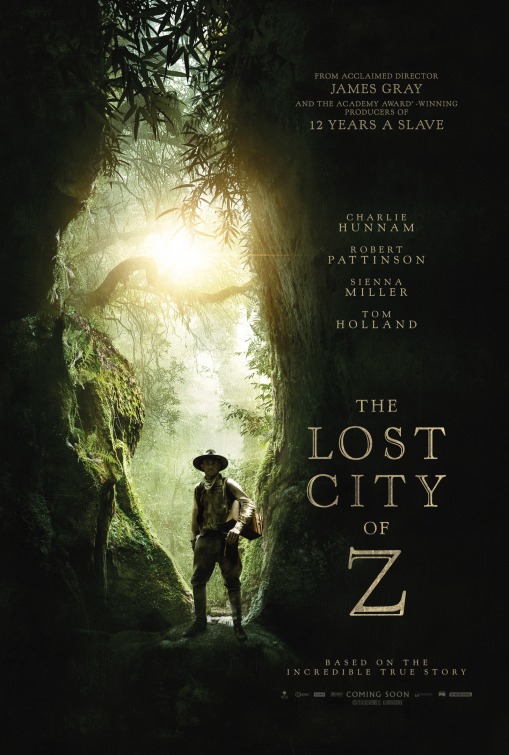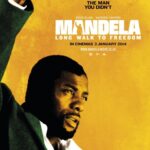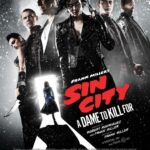Based On The Incredible True Story
Director
James Gray
Starring
Charlie Hunnam
Robert Pattinson
Sienna Miller
The Lost City Of Z follows twenty years in the life of turn of the twentieth century British military officer turned explorer, Percy Fawcett [Hunnam]. He leaves his pregnant wife Nina [Miller] and young son behind and ventures to South America on a map chartering expedition for the Royal Geographical Society. Accompanying him as his adie-de-camp is Corporal Henry Costin [Pattinson], a quiet but blunt man with a penchant for alcohol. On their journey down the Amazonian river, the group discover evidence of ancient pottery and return to England to seek funds for a full archaeological expedition. In London he is met with ridicule at the claim that savage nations could be anything more than hut-dwelling cannibals but returns to the jungle, much to the chagrin of his family.
South America is one of those lush environments that, even to this day, proves to be as mysterious and revealing as the depths of the oceans. It’s such a vibrant hub of all forms of life that tales of trekking down the Amazon usually evoke an overarching feeling of bravery or sheer madness. During the first half of the twentieth century, films of this nature were extremely popular; then as the seventies went through an independent world cinema renaissance, the concept of getting lost in the jungle, being driven insane and consumed by it took root again. But this is a genre (if you can call it a genre) that has long since been absent from cinema. The Lost City Of Z feels like an attempt to revel in the aesthetic, tonality and narrative flow of these releases and in doing so produces something both wondrous and horribly disappointing – kind of like the new Power Rangers film.. sort of.
Above all else, this is a story of arrogance, pride and obsession. From the outset, Fawcett establishes that he is one of the only military men to hold his rank without significant decoration thanks to the drinking and gambling habits of his father. As such, his initial drive is for glory, valour and reward, it’s only once the jungle take hold of him that he starts to lose himself to the search for proof of an ancient civilisation. This is cemented by a scene during his first expedition wherein Fawcett is unable to read his wife’s letter, so asks Costin to give him the rough details (one of which is that he has a newborn son named Brian) and then burns it; committing himself wholly to the cause. Interestingly, despite all this machismo and ‘King and country’ stuff, The Lost City Of Z avoids jingoistic empire worship by highlighting the sexist, racist, prejudice opinions of yesteryear, which Fawcett meets at seemingly every turn. He proclaims to have found evidence of a civilisation that predates his own but his peers refuse to allow the “savages” to be elevated above their station, his wife finds the documents which supports his claim and she is dismissed to the viewing platform for her gender and when encountering a new tribal people, the veteran explorer is repulsed by the idea of joining in their rituals. One could argue Fawcett demonstrates these attributes at times, to varying degrees, but to not include that aspect to his character would be completely anachronistic.
The film’s greatest strength is easily the beautiful, rich, dark cinematography. From the shadowy wood-panelled rooms of the RGS to the deepest jungles of South America, everything is coated in an old world feel, thoroughly stylistic and evocative of old photographs but extraordinarily effective. In essence, this film is Darius Khondji’s first real opportunity to shine and illustrate just how skilled he is since The Beach. Working in tandem with the superb camera work are the extremely efficient production crew and costume designers. As stated, the sets and props give a deep sense of reality to the undertakings and the costumes evolve from late Victorian high-collared flare to mid-1920’s post-war art deco influences. And that’s before we get on to the sound design which masterfully juggles the constant hum of jungle life while dialogue rings through clear, concise and without issue. All of which is standard fare for a period film of this scale but to include a lengthy scene set during World War I’s Battle of the Somme is incredibly impressive.
**Spoiler at the end of this paragraph**
So while this film is firing on all cylinders from a technical standpoint, it starts to flail when it comes to performances – largely depending on your tastes. There will be those who appreciate the resilience and determination of Hunnam’s performance while others will say his obsession is not nearly present enough. The real trouble starts with Percy’s wife, Nina. Sienna Miller gives a solid performance as the ahead-of-her-time independent wife/mother but as the central story is told from Percy’s perspective, anything directly regarding his wife and her decisions are heavily neglected. I can understand why, because in order to relate to the isolation of the mission, we can’t know the life he’s left behind, we have to experience the age shifts as he does; but it still makes for a less rewarding arc from a specific character point of view. On top of that the pacing is very tricky to gauge: the events in Fawcett’s life outside of South America are breezed over but this is only really notable in hindsight. So on the one hand this could just be botched in the scripting phase but it could also be a statement that his “life” plays second fiddle to the importance of his Amazonian quest. Ultimately, it’s something we, as an audience, can only speculate on. And speaking of speculation, the film ends with an incredibly ambiguous close that mirrors the real-life mystery of what happened to Fawcett and his son. Was he killed by natives? Was he inducted into a tribe and unable to leave? Did he simply get lost and run out of supplies? No one knows and as such the film’s close is both perfect and frustratingly lacklustre.
In truth, the impact of this film isn’t immediate or exceptionally powerful, it’s seductive and absorbing. It’s one that sticks with you in a haunting way -similarly to the Amazon’s hold on Fawcett’s imagination. But I would argue that these feelings would only well up in certain audience members, making this film a very like it or loathe it release. For me, it’s a bit of both.
Release Date:
24th March 2017
The Scene To Look Out For:
Upon his return with evidence of pottery, Fawcett is met with jibes and jeering for giving the savage nations more credit than they are worth to elevate his own standing. Anyone who has seen the format and rowdy nature of the British parliament will be all too familiar with this kind of attitude but Hunnam does well to shout down the mob, goading them for not being able to look past their own place in the world. Well written, well performed, well lit and editing nicely, it is a great example of how much this movie about the spirit of the Amazon accomplishes without a blade of grass being present.
Notable Characters:
For very different reasons, Robert Pattinson and Angus Macfadyen are great to watch. Pattinson is a massively underrated actor – as many who get pigeonholed following major franchise releases tend to be – and his role as Fawcett’s aide-de-camp evolves nicely from apathetic drunkard to genuine friend, all the while retaining his introverted mannerisms. In a very different way, Macfadyen’s role as arctic explorer James Murray is fist-clenchingly irritating. He’s the perfect embodiment of an elitist weasel who has been living off his own legend, joins the group, doesn’t pull his own weight and then returns with claims that protect his own name and scuttle the expedition.
Highlighted Quote:
“Our world has set itself afire; we must look elsewhere to quench the blaze”
In A Few Words:
“Seemingly made for a very niche target audience, The Lost City Of Z generates a great degree of scope but fails to deliver on compelling emotional investment”
Total Score: 3/5
![The Red Right Hand Movie Reviews [Matthew Stogdon]](https://reviews.theredrighthand.co.uk/wp-content/uploads/2021/12/cropped-header1.png)




